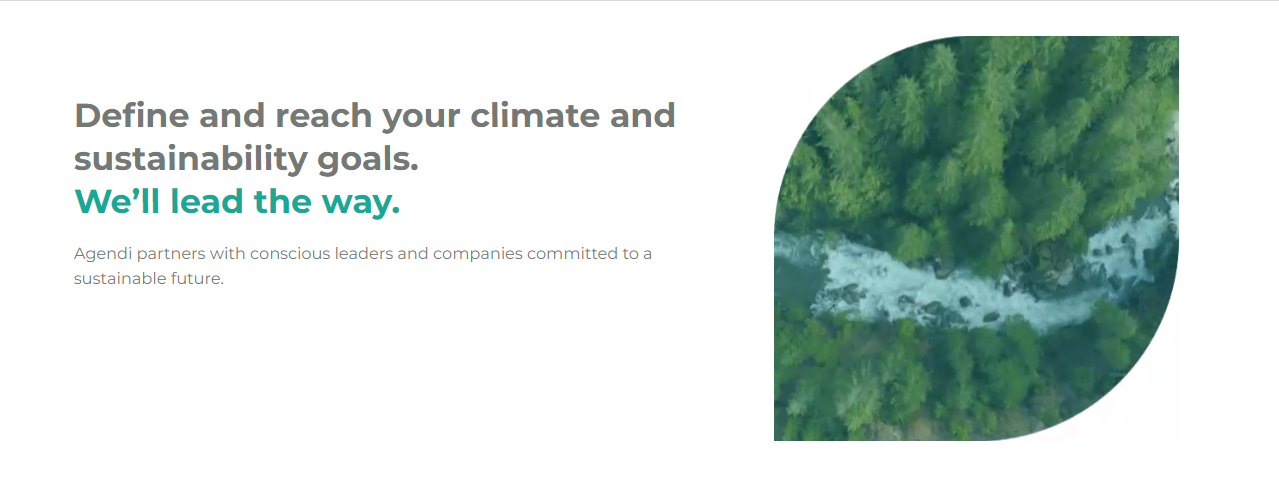

Agendi Inc.

New York, United States
July 2022
Environmental consulting
Service with Minor Environmental Footprint
Canada,
United Kingdom,
United States
Pioneers in the fundamentals of greenhouse gas management, Agendi brings a team of multidisciplinary experts to develop and implement your climate and sustainability programs. Our seasoned specialists have demonstrated experience delivering a range of tailored sustainability solutions based on your desired level of ambition and stakeholders’ expectations. We operate globally, with offices in New York, London, and Montréal. Our agile team is dedicated to advancing our transition to a low carbon economy. With climate action and ESG principles at the core of our operations, our experts leverage their knowledge to create and lead resilient strategies. We build partnerships with diverse clients across industries and of all sizes; whether you are just beginning, or have already set a net-zero target. Our goal is to unlock the next generation of climate leaders and pave the way for a sustainable future. Core services: • Assessment (benchmark, GHG inventories, TCFD) • Strategy and goal setting (science-based targets, net-zero pathways, renewable energy procurement and generation) • Progress tracking and reporting (CDP/GRI/SASB/DJSI/SDGs) • Purposeful projects (carbon removal and offsets including nature-based solutions)
Overall B Impact Score
Governance 19.2
Governance evaluates a company's overall mission, engagement around its social/environmental impact, ethics, and transparency. This section also evaluates the ability of a company to protect their mission and formally consider stakeholders in decision making through their corporate structure (e.g. benefit corporation) or corporate governing documents.
What is this? A company with an Impact Business Model is intentionally designed to create a specific positive outcome for one of its stakeholders - such as workers, community, environment, or customers.
Workers 33.8
Workers evaluates a company’s contributions to its employees’ financial security, health & safety, wellness, career development, and engagement & satisfaction. In addition, this section recognizes business models designed to benefit workers, such as companies that are at least 40% owned by non-executive employees and those that have workforce development programs to support individuals with barriers to employment.
Community 15.9
Community evaluates a company’s engagement with and impact on the communities in which it operates, hires from, and sources from. Topics include diversity, equity & inclusion, economic impact, civic engagement, charitable giving, and supply chain management. In addition, this section recognizes business models that are designed to address specific community-oriented problems, such as poverty alleviation through fair trade sourcing or distribution via microenterprises, producer cooperative models, locally focused economic development, and formal charitable giving commitments.
Environment 13.2
Environment evaluates a company’s overall environmental management practices as well as its impact on the air, climate, water, land, and biodiversity. This includes the direct impact of a company’s operations and, when applicable its supply chain and distribution channels. This section also recognizes companies with environmentally innovative production processes and those that sell products or services that have a positive environmental impact. Some examples might include products and services that create renewable energy, reduce consumption or waste, conserve land or wildlife, provide less toxic alternatives to the market, or educate people about environmental problems.
What is this? A company with an Impact Business Model is intentionally designed to create a specific positive outcome for one of its stakeholders - such as workers, community, environment, or customers.
Customers 13.3
Customers evaluates a company’s stewardship of its customers through the quality of its products and services, ethical marketing, data privacy and security, and feedback channels. In addition, this section recognizes products or services that are designed to address a particular social problem for or through its customers, such as health or educational products, arts & media products, serving underserved customers/clients, and services that improve the social impact of other businesses or organizations.
What is this? A company with an Impact Business Model is intentionally designed to create a specific positive outcome for one of its stakeholders - such as workers, community, environment, or customers.